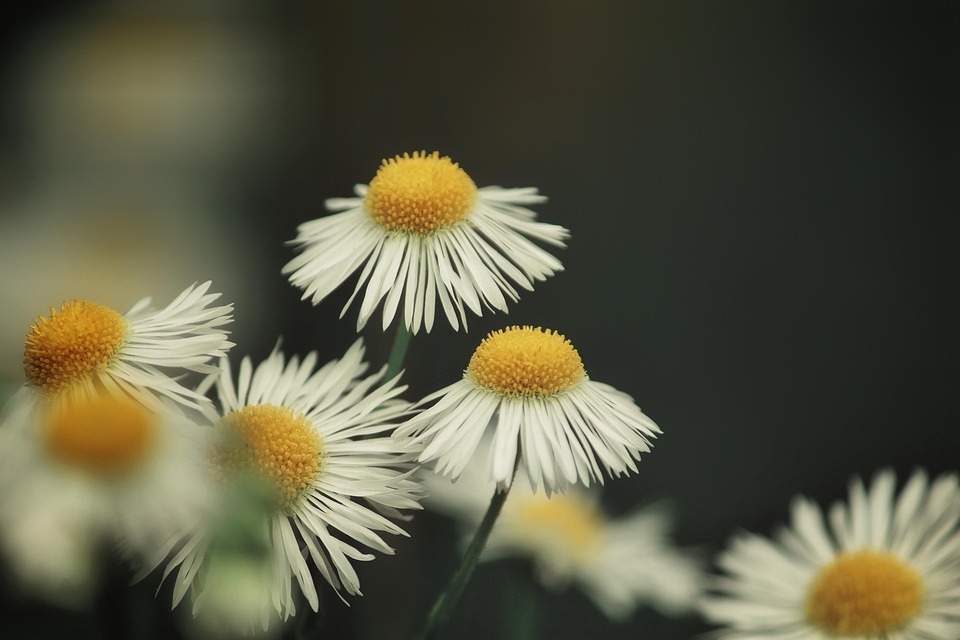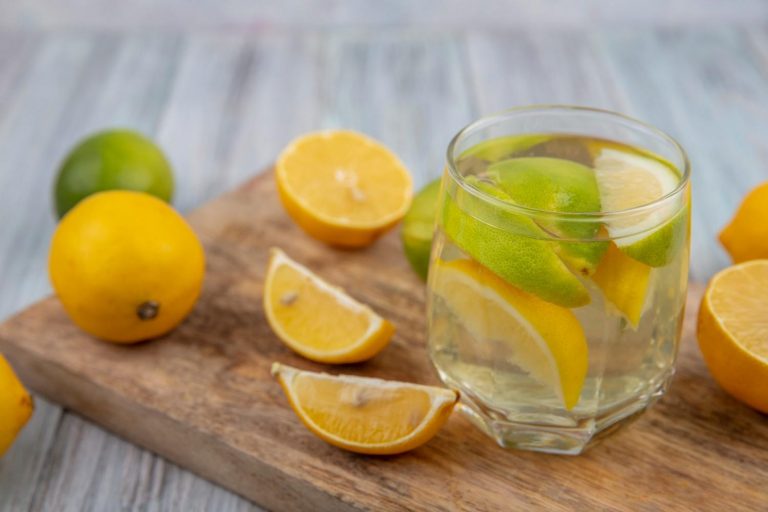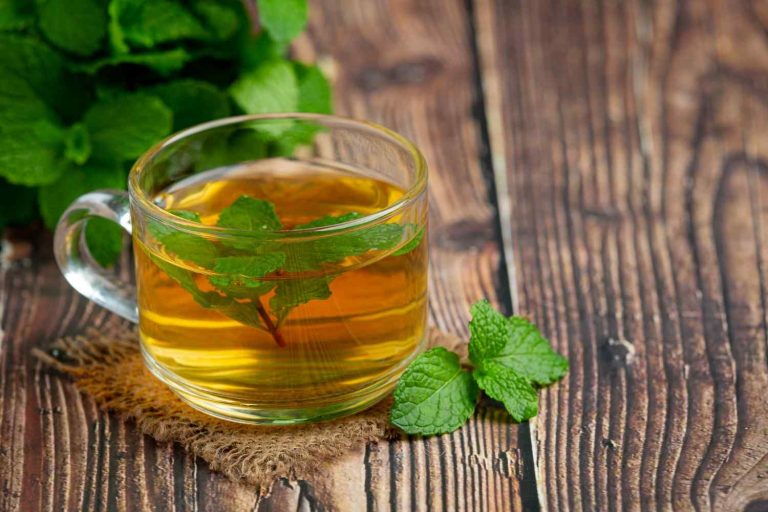Brain focus herbs are natural allies that help sharpen attention, support memory, and steady your thinking when your day demands it most. These are not magic pills. They are time-tested plants with studied compounds that influence neurotransmitters, circulation, and the stress response. If your brain feels foggy, distracted, or just worn thin, the right herbs can give you calm focus without the crash.
I’ve tried many supplements over the years. Some worked a little. A few worked a lot. Below I share seven reliable picks and how to use them so you get real results—safely and simply.
Contents
7 Brain Focus Herbs To Sharpen Your Mind
These seven herbs stand out because clinical work supports them and because people report tangible benefits. I’ll tell you what the science says, how to dose, and what to watch for so you don’t waste time or money.
Ginkgo Biloba, Circulation And Recall
Ginkgo biloba is a classic entry among brain focus herbs. It improves blood flow to the brain and is often used for memory and mild cognitive complaints. Multiple clinical studies and meta-analyses point to modest benefits for memory and attention, especially in older adults, and Harvard Health discusses ginkgo’s potential and precautions.
How to use it: Look for standardized extracts (24% flavone glycosides, 6% terpene lactones). Typical dosing is 120–240 mg daily split twice. Start low and give it at least 6–12 weeks.
Safety note: Ginkgo can thin the blood. If you take blood thinners or have surgery planned, talk to your clinician.
Bacopa Monnieri, Memory And Learning
Bacopa monnieri ranks high on lists of brain focus herbs for a reason. It’s been used in Ayurvedic medicine for centuries and modern trials show improvements in memory consolidation and recall after consistent use.
How to use it: Standardized extracts containing 20% bacosides are common. Typical dosing is 300–450 mg daily taken with food to reduce stomach upset. Expect benefits after about 8–12 weeks of daily use.
Practical tip: People often take bacopa at night because it can be mildly sedating for some. If you need daytime sharpness right away, pair it with a fast-acting herb like rosemary or a short walk.
Rhodiola Rosea, Stress-Proof Focus
Rhodiola is one of the stress-fighting brain focus herbs. It’s an adaptogen that helps your nervous system adapt to pressure—mental or physical—so you can keep working without spiraling into anxiety or exhaustion.
How to use it: Standard extracts standardized to rosavins and salidroside (often a 3:1 ratio) are typical. Doses range from 100–400 mg taken in the morning or before a stressful task. Don’t take it late in the day if it energizes you.
Evidence note: Controlled trials show rhodiola can reduce fatigue and improve mental performance under stress. Mayo Clinic and several clinical trials discuss its application for burnout and fatigue.
Ashwagandha, Calm Clarity
Ashwagandha is a balancing adaptogen among brain focus herbs that tamp down the overactive stress response and coax your brain back into clearer thinking. It’s not a stimulant. It smooths out the spikes in cortisol that scatter attention.
How to use it: KSM-66 and Sensoril are popular standardized extracts. Common dosing is 300–600 mg daily, usually taken with meals. Benefits often show up in 6–12 weeks.
Clinical context: Trials in people with stress-related cognitive complaints show improvements in attention and memory when stress is reduced. Always check interactions if you’re on thyroid or sedative medications.
Gotu Kola, Circulation And Cognitive Support
Gotu kola is a lesser-known but potent brain focus herbs option that’s been used in traditional medicine to support memory and circulation. It helps microcirculation and supports connective tissue, which can indirectly help brain health.
How to use it: Typical doses are 60–180 mg of a standardized extract, or you can drink it as a tea. Use it as part of a daily routine rather than expecting instant results.
Evidence: Small clinical trials and traditional use support its role in cognitive function and mood. Pair gotu kola with lifestyle measures—sleep, hydration, movement—for best results.
Rosemary, Aromatic Boost For Short-Term Memory
Rosemary delivers aromatic uplift and sits on the shelf of brain focus herbs that give immediate, observable effects. Smelling rosemary essential oil has been linked with short-term memory improvements and alertness in controlled settings, making it a great tool on a busy day.
How to use it: Diffuse rosemary essential oil or inhale directly from the bottle for hit-and-run clarity. You can also use culinary rosemary liberally in food for a small cognitive nudge.
Quick win: Before a meeting or studying, give yourself three deep inhalations of rosemary aroma and notice the difference. For longer effects, combine aromatherapy with a supplement from this list.
Sage, Traditional And Scientific Backing
Sage is one of the oldest brain focus herbs used in kitchens and clinics. Both culinary sage and specialized extracts have been shown to support memory and cognitive performance.
How to use it: Sage teas can be pleasant and effective; standardized extracts are used in trials showing measurable benefits in older adults and healthy volunteers. Typical extract dosing is 300–600 mg daily depending on the preparation.
Safety: Culinary use is generally safe. Some concentrated sage essential oils can be potent and should be used cautiously.
How To Choose Quality Supplements
When you choose brain focus herbs, quality and dosing matter. Look for these markers:
- Standardized extracts with clear percentages of active compounds.
- Third-party testing certificates (USP, NSF, ConsumerLab).
- Transparent sourcing and manufacturing practices.
- Clear dosing instructions and warnings on the label.
If a product looks cheap and promises overnight genius, skip it. The herbs here deliver real, measurable benefits, but you must choose well-made products and use them consistently.
Combining Herbs And Lifestyle For Maximum Effect
Herbs aren’t a solo act. Pairing them with smart habits multiplies results.
- Sleep: Deep sleep is where memory consolidates. No herb will replace sleep.
- Movement: Short walks prime the brain for focus.
- Hydration and diet: Omega-3s, antioxidants, and steady blood sugar support herb action.
- Timing: Adaptogens like rhodiola and ashwagandha are best when used consistently. Aromatics like rosemary can be used in the moment.
A simple regimen: rosemary inhalation before a focused task, bacopa nightly for memory consolidation, and rhodiola for morning stress resilience. That combo addresses immediate and long-term cognitive goals.
Safety, Interactions, And Who Should Watch Out
Many brain focus herbs are safe when used appropriately, but interactions matter.
- Blood-thinning medications and ginkgo can be a problem.
- Thyroid medications and ashwagandha may interact.
- If you’re pregnant, breastfeeding, or taking multiple prescriptions, check with your clinician.
- Always start low. Watch for stomach upset, sleep changes, or blood pressure shifts.
When in doubt, consult a qualified practitioner who understands botanicals and drug interactions. The U.S. National Institutes of Health and academic reviews on PubMed are reliable places to check specific herb interactions.
Bottom Line
The right brain focus herbs can sharpen your mind, steady your attention, and reduce the scatter that steals your day. Use standardized, well-made products, pair them with sleep and movement, and be patient—most herbs reveal their benefits over weeks, not hours. Start with one or two herbs, track how you feel, and build a routine that fits your life.
Use brain focus herbs wisely and you’ll notice the difference in calm focus, clearer thinking, and better memory.
FAQ
Are brain focus herbs safe to use daily?
Many brain focus herbs are safe for daily use when taken at recommended doses and sourced from reputable manufacturers. Long-term use should be monitored by a healthcare professional, especially if you take other medications.
How long until brain focus herbs work?
Some herbs, like rosemary aroma, can sharpen attention immediately. Others—bacopa, ashwagandha, and ginkgo—tend to show benefits after 6–12 weeks of consistent use. Expect gradual, cumulative improvement.
Can I stack multiple brain focus herbs together?
Yes, but stack thoughtfully. Pair a fast-acting aromatic (rosemary) with a longer-term tonic (bacopa) or an adaptogen (rhodiola). Start one herb at a time so you can assess effects and avoid interactions.
Do brain focus herbs interact with medications?
Some brain focus herbs may interact with medications such as blood thinners, thyroid drugs, or sedatives. Always consult your prescriber before combining herbs with prescription medications.
—, —
This article reflects clinical findings, traditional use, and practical experience to help you choose and use brain focus herbs with confidence. Trust your body, watch for changes, and treat supplements like partners—not magic shortcuts.
References
National Center for Complementary and Integrative Health provides an evidence-based overview of herbal medicines and safety considerations (http://nccih.nih.gov).
PubMed at the National Library of Medicine indexes clinical trials and systematic reviews on ginkgo, bacopa, rhodiola, and other herbs (http://pubmed.ncbi.nlm.nih.gov).
Harvard Health publishes accessible summaries on ginkgo, rosemary, and other herbs and their effects on memory and cognition (http://www.health.harvard.edu).
Mayo Clinic offers guidance on when to seek advice about supplements and potential interactions (http://www.mayoclinic.org).
Get Your FREE Natural Health Guide!
Subscribe now and receive our exclusive ebook packed with natural health tips, practical wellness advice, and easy lifestyle changes, delivered straight to your inbox.




